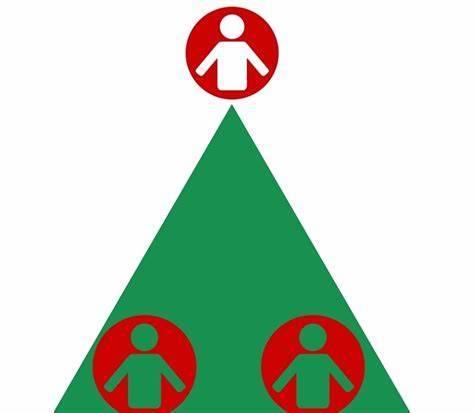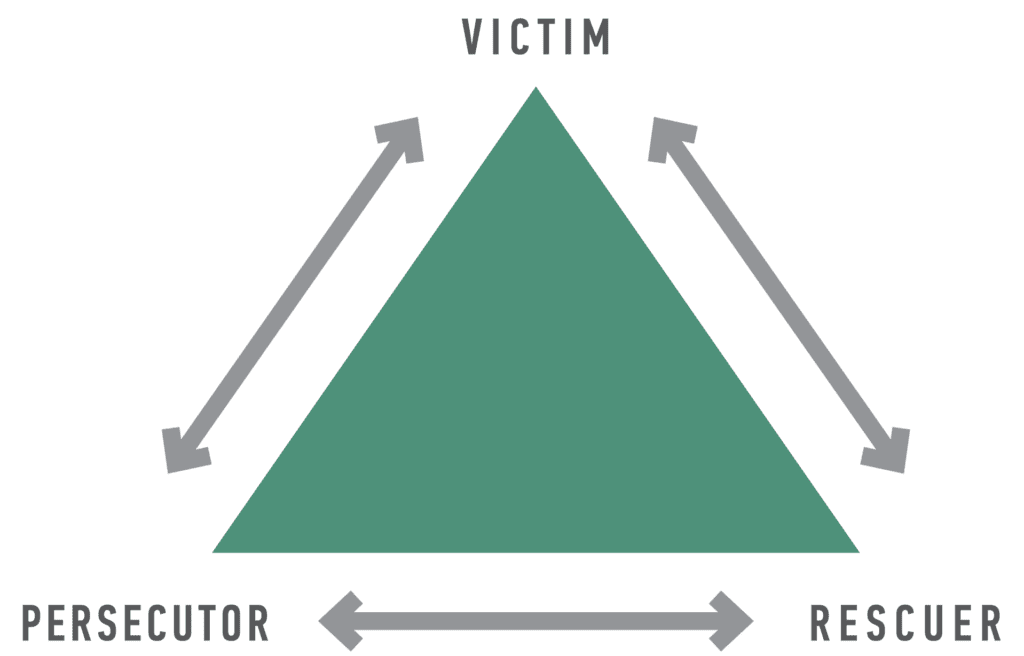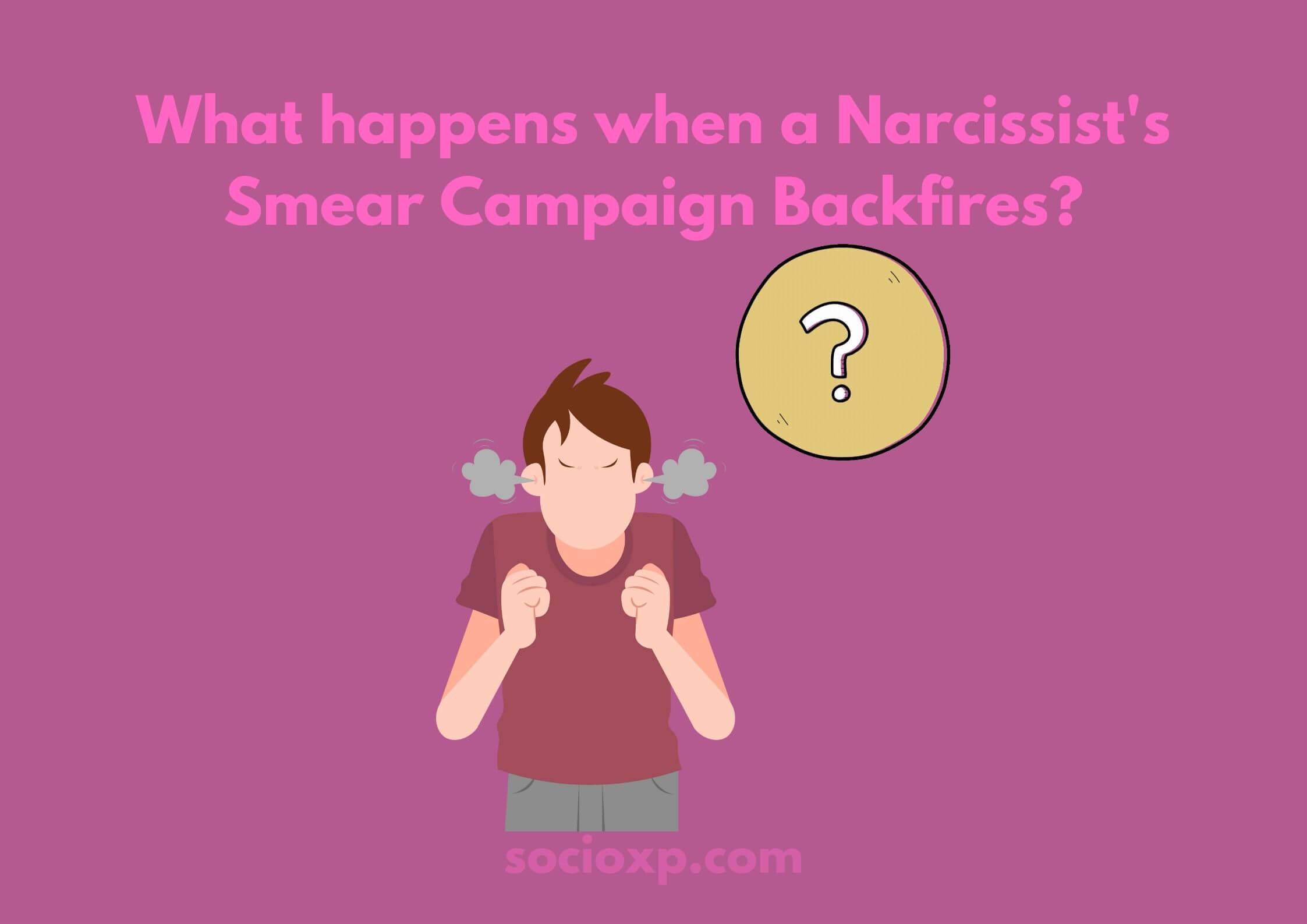What is Narcissistic Triangulation? – Meaning, Examples, and Ways to cope
What is Narcissistic Triangulation? How to spot it and stop it? Narcissistic triangulation is a toxic and manipulative tactic used by narcissists to devalue their victims by making constant comparisons.
Have you come across someone who constantly compares you with someone else? This typical tactic of comparison is a manipulative tactic, that is termed as “Triangulation”. This tactic is used by manipulators or someone suffering from a mental health disorder like narcissism.
Triangulation is one of the commonly used tactics by bullies, as they are tyrants who would purposefully bring up other people in their party reference while having conversations with someone to make them feel bad about themselves and also gain an upper hand if it is a problematic situation that is being discussed.

Narcissistic triangulation is where they involve a third person in an ongoing issue for various reasons. They often use this technique while having disputes, uncommon arguments, or disagreements. If you are facing a similar situation then this is the right chance to acknowledge those with this article and also know some way to respond to such situations.
What is Triangulation?
Triangulation while referred to with psychology, is a situation where a single person is able to play off with two or more people at a time, manipulating them, playing with their emotions, and forcing their victims only to communicate through them. It is a similar strategy to divide and rule, where the narcissist is the conqueror or ruler and the victims become their subjects. They would manipulate their victims to side with them, outwinning the other victims.
In simple words, it is just a circumstance, where one person tries to control situations, where they maintain control over their victims or opponents by encouraging differences of opinions and forbidding the other two parties from uniting. They only want they become the centre of the dispute and both parties fight it off to side with them.
It is a manipulative tactic where two parties or two people try to draw in a third party or third person to change the trajectory of the problematic situation. It is a situation where a person wants to seek an advantage over others by creating issues and forcing them to choose sides to dominate the scenario. Triangulation may not always be intentional for other people, but for narcissists, it is a way to navigate and make the situation more uncomfortable and rugged than it already is.
The goal of triangulation is to be the deciding factor or derivating person who becomes someone of true importance by making a critical situation in a dispute situation. Sometimes this can be done by directly or indirectly participating in a disagreement between two parties and becoming a critical link to drive the end result of the problem thus holding the power as the third party who may be active or inactive in playing their role, but wins ultimately.

Reasons why Triangulation is commonly used
- To create a distraction from the real issue and divert people off-topic.
- Diverting the stress of a problematic situation onto a third party.
- Making the critical difference in a tricky and troublesome situation to gain control and power.
- To incline the argument towards someone by seeking help from others.
- Strengthening one person’s superiority to make a ruling.
- This may be a positive point, but sometimes triangulation is also used to make an attempt to solve an argument using a third party.
What is Narcissistic Triangulation?
Triangulation may or may not be done on purpose, whereas narcissistic triangulation differs here, as it is done on purpose with intentions. Individuals with Narcissistic Personality Disorder use consistent and unchanging patterns of triangulation that may include some major roles. These roles are in context with a narcissist’s characteristics and desire to win the third party in order to win the argument or disagreement.

These major roles are discussed below,
The Victim – Narcissists would present themselves as the victim here. They would present themselves as someone who is being taken advantage of and someone who is helpless. Narcissists have the victim mentality if they believe that they can gain something out of the guilt-tripping. Narcissists are manipulators and they tend to manipulate people around them to gain benefit.
The Rescuer – To imagine a narcissist as a rescuer may not seem very likely, and unimaginable but there are a few instances where a narcissist plays the role of a rescuer in order to gain superiority and power in some situations. They would take the role of a rescuer just to present the final verdict and smoothen things over. They would also take the responsibility to support the party they are siding with to make them feel guilty.
The Persecutor – Narcissists acts as the initiator for blaming, attacking, and using aggression and criticism to highlight the wrongdoer. When they make up their mind regarding someone as the wrongdoer, they would take any measures to establish the same.
Why Do Narcissists Use Triangulation?
Narcissists use triangulation to gain control over others and also to gain attention and adoration. Narcissists may also use triangulation to protect their boosted egos. Narcissists constantly need their narcissistic supply, which they gain by manipulating others and gaining control over them. Narcissists gain control over the situation by using triangulation by siding with the victim and acting as the mediator who is able to change the situation for the victim by winning over the argument.
Triangulation may encourage the victim to support the narcissist by complimenting them, admiring their presence in the argument, and being supportive to them, thus providing a narcissistic supply to the narcissist indirectly. One of the parties with whom the narcissist is siding may praise the narcissist and would do anything to win against the opposite party. Though both parties would not understand what is going on, also they would understand the manipulation tactic of triangulation.
Examples of Narcissistic Triangulation in Relationships
People around the narcissist have to constantly be a part of their unavoidable manipulation. Narcissist triangulation will happen in any relationship that may involve a narcissist, in particular all the relationships that a narcissist cannot cut ties or avoid. For instance, they might end their friendship easily when their control is restricted, but with familial relationships, they might get even more manipulative when their control and power are restricted.
Let us know how narcissists use triangulation in their relationships,

Narcissistic Triangulation Between Parents and Children
Narcissistic Parents often use their children as a part of triangulation, when their partners wish to discontinue the relationship or try to leave them. The narcissistic parent or the narcissistic partner would try to win over their children by love bombing and making the other parent seem unloving. They would make extra effort to get children on their side and bully the other partner who wishes to exit the relationship.
In many cases, when the narcissistic partner wants things their way, they would simply use triangulation to force the other partner to do things their way. By doing so, the narcissist tries to gain control over the family.
A few instances of narcissistic triangulation between a parent and a child,
- Refusing communication with the other parent directly, and using children as a medium to pass information.
- Leveraging children and provoking them against the other parent just to make them choose their favorites.
- Choosing unreasonable rules making false limits and ignoring the rules and limits set for the children by your partner.
- Offering treats and non-essential things to children that might be forbidden by the other parent.
- Convincing the children that the other parent who may have left is solely at fault due to their absence.

Narcissistic Triangulation in Families
The narcissistic member of the family uses triangulation to gain control and power in the family. They would establish a systematic manipulative network that includes all family members into providing them superiority and a position of power to be obeyed.
If a narcissist has two or more children, the obedient child or the narcissist enabler child becomes the golden child, the middle child becomes the disregarded one in the family whose needs are just shunned, and the third child becomes the scapegoat or the problematic child who usually disobeys or is troublesome for the narcissistic parents.
The narcissist in the family would turn everyone else in the family against their partner, who may not support their ill motives and support the narcissist. They would refuse to provide the narcissist with supply and thus they become jailbirds of the family.
Examples of Narcissistic Triangulation in Families include,
- A narcissistic mother can be or would most certainly be biased toward her son and daughter. They would triangulate to separate favorites. Narcissistic mothers may be gender biased and treat their sons differently.
- Narcissistic fathers can be agonizing as they create their own share of agony and suffering for their children. Narcissistic fathers can leave a deep impact on their children’s lives, especially their sons, and might also make the children against you, who might try to save the children from the abuse.
- Narcissistic mother-in-laws would try to establish their control over you. They would have an acute or shallow relationship with their children, which can also be implied to you as your mother-in-law. A mother-in-law might triangulate and complain to their sons about their daughters-in-law.
- Narcissistic Daughters and Daughters-in-Law may be responsible for parting families apart, or at least play a role in creating differences among family members. Daughters-in-law may also be held responsible for separating the sons from their parents especially mothers in many cases daughters and daughters-in-law may be responsible for separating their grandchildren from their grandparents by using triangulation.

Narcissistic Triangulation Between Siblings
One more way that narcissistic parents might triangulate within their families is by triangulating the siblings against each other. This can occur when a narcissistic parent measures both siblings based on abilities, achievements, and winnings. Triangulation can also occur when a narcissistic sibling might pit against the other sibling to their parents.
Examples of Narcissistic triangulation between siblings,
- If a narcissist has two or more children, the obedient child or the narcissist enabler child becomes the golden child, the middle child becomes the disregarded one in the family whose needs are just shunned, and the third child becomes the scapegoat or the problematic child who usually disobeys or is troublesome for the narcissistic parents.
- A narcissist usually would love their kids except for the matters where the narcissist’s grandiose image is put on-line or in shame. Narcissists do not hate their kids, but they are definitely biased toward them. If a narcissistic mother has two kids, there would be a constant battle between them to procure their mother’s love, attention, and care.

Narcissistic Triangulation in Romantic Relationships
Narcissistic Triangulation in romantic relationships is a very common sight as they might compare their current partners with their previous ones to gain more affection, devotion, and control.
Examples of Narcissistic Triangulation in Romantic Relationships,
- A narcissist might bring a mutual friend into an argument between them and their partner to resolve. They might not communicate directly with their partners, but instead drag a third party to bring solutions.
- A narcissistic partner might call their partner’s mother to complain about their negative behavior and also to make them more obedient so that they can have control over their partner.

Narcissistic Triangulation in Friendships
A narcissist would try to bring triangulation in the friendships and other social relations that they are involved in. They would use triangulation to distract their peer’s attention from their changed behavior after revealing their rushed bond. When their mask of fakeness falls off, they need a distraction to maintain their reputation among their peers. They would use triangulation to bewilder their peers from figuring out the true self of the narcissist.
It becomes really difficult to figure out the narcissists as they conceal their true selves flawlessly. Yet there are a few examples which may help you to recognize the triangulation tactic,
- Always looking for praise and adoration in the friendship, in order to feel more worthy.
- To gain superiority in friendships by flaunting one’s knowledge to win some argument.
- Repetitively mentioning other friends to make the current friend group feel inferior. This way they would intrigue their friend’s interest in making the narcissists feel more satisfied with their friendship. This way narcissist procures their narcissistic supply.
- Acting entitled to their friend, in order to gain importance in the friendship, and making them choose between them and other friends just to boost their sense of entitlement.
- Always comparing themselves to a person’s other friends in the peer group and making them feel predominant.

Narcissistic Triangulation in the Workplace
Triangulation is very common in workplaces when you have narcissistic bosses or colleagues. The difference in the degree of power and authority often involves people into comparisons leading to workplace triangulation.
A few instances of Narcissistic Triangulation in the Workplace,
- A narcissistic boss creates a conflict between two employees working on the same project and leaves the final verdict based on their decision.
- A narcissistic colleague or a co-worker might triangulate to rebuke their competitive co-workers.
- A fierce co-worker might gossip about the competitive employees to stop their promotions or stop leadership roles.

Ways to cope with Narcissistic Triangulation
It is not entirely possible to stop the narcissistic triangulation, but there are ways that can help you cope with the toxicity, and those ways are,
Address their behavior through a direct conversation
While conversing with a narcissist, make a habit of being as direct as possible. Look them straight in the eye, and have a respectful tone of voice. Be natural and gentle, and then slide into the phase that their communication style is not healthy.
Spotting the signs of Triangulation
Spotting a triangulation can be done easily. When someone is constantly praising others despite any situation especially to make you feel low or lesser, degrading your achievements by comparing those with others, attacking your self-worth and self-importance, and so on. These can be a few signs to consider to spot triangulation.

Change the subject
When you feel that you are being compared with others or a third party may soon be entering your conversations, then this is the time to switch subjects but smoothly and effortlessly without making it obvious. Start a conversation that may serve a common interest for both of you.
Build a strong support network
When a narcissist tries to constantly lower your worth, by comparing you with others, make sure that you are having healthy, positive, and motivating conversations with people around you. To do so you might need a strong support network of people that may include your friends, family, colleagues, or anyone that you can rely on.
Maintain a Journal about the narcissist’s effect on you
Journaling may always help in resolving the emotional turmoil that you may be facing due to the narcissist’s constant manipulation in the form of triangulation. Writing down or journaling your true feelings and being vulnerable with your words can help to release a lot of stress.

Cut off communication entirely if needed
When the toxicity surpasses the average level of tolerance, then it is time for you to cut off contact and communication with such a person. If all conversations with them are just comparison and competition then it may be the time to let go of such a person.
Talk to a Therapist if required
Seeking help from professionals like therapists, taking healing therapies, consulting, and discussing the issues with experts can help out a lot in such matters.
Establishing Boundaries
Setting boundaries can help you maintain your emotional well-being in the first place. It is not possible entirely to stop the narcissist from manipulating you, but it is absolutely possible to remind them of the boundaries now and then. Setting boundaries means clearly discussing what behavior is acceptable and what is not. Stick to your boundaries and do not let them manipulate you.
Staying calm in the moment
Not engaging in any kind of arguments, discussions or disagreements may entirely close the topic off or at least subtle it down to some extent. Responding in a non-emotional, calm, and composed way can really beat their game. Showing them that their behavior is not going to affect you, may save you from all the drama and trauma.
Final Thoughts
Dealing with narcissistic triangulation that includes manipulation, toxicity, abuse, and negativity is not easy in itself. It is stressful and exhausting. But remember there is always hope and healing and you are not alone in this. Reach out to family, friends, therapists, or any of your support systems.
Believe in yourself, be self-aware, and prioritize and protect your well-being. Also, make sure to protect your emotional and mental well-being.
- How does a Narcissist respond to No Contact?: 10 Plausible reactions - November 6, 2025
- The Inverted Narcissist: Traits that Describe Them - November 6, 2025
- What is an Empathetic Narcissist?: Meaning, Traits, and Ways to Cope with Them - November 4, 2025


